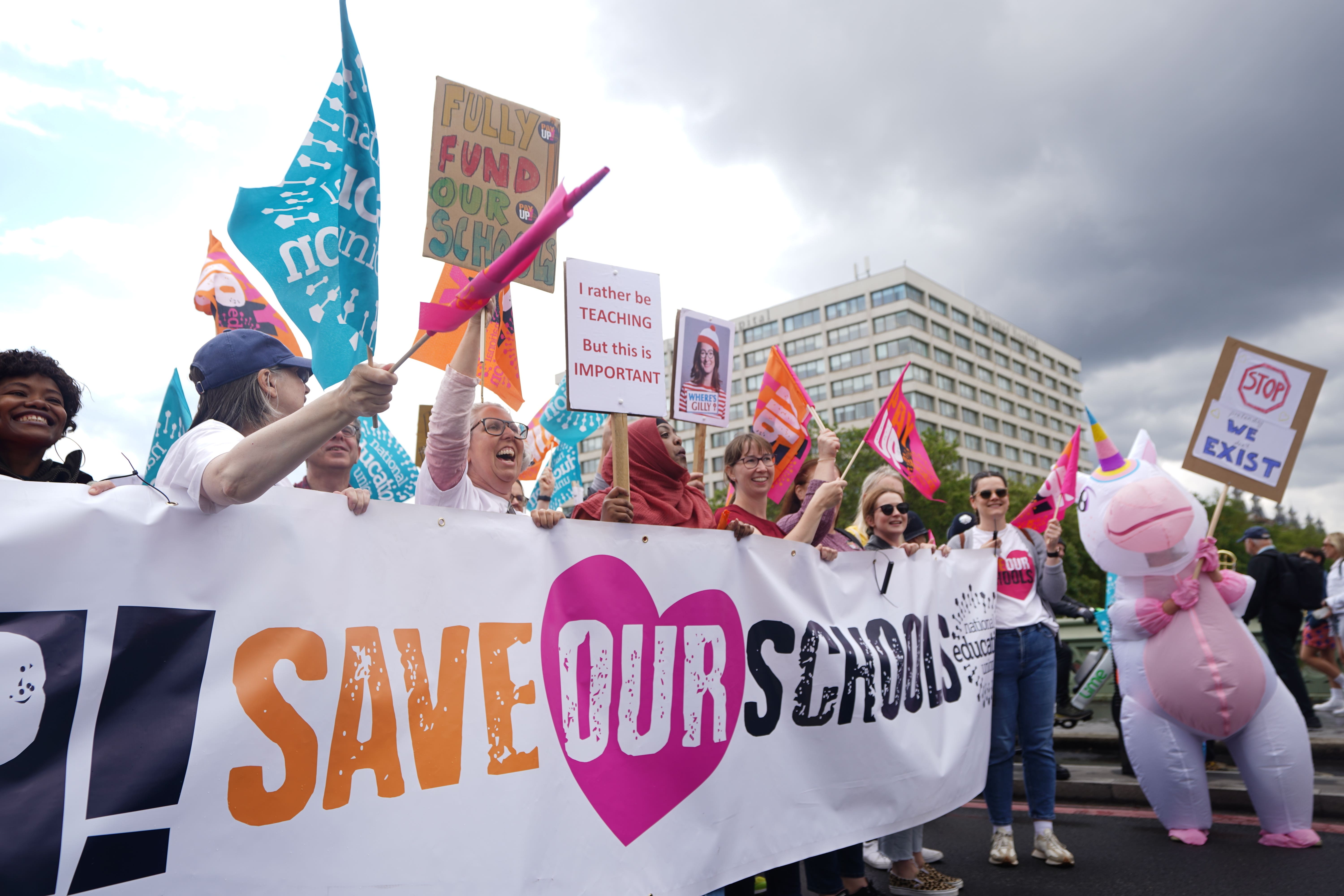Public sector pay rises could cost up to £10 billion, economist warns
Paul Johnson said he was ‘not terribly surprised’ by reports that pay review bodies could recommend 5.5% rises for teachers and nurses.

Your support helps us to tell the story
From reproductive rights to climate change to Big Tech, The Independent is on the ground when the story is developing. Whether it's investigating the financials of Elon Musk's pro-Trump PAC or producing our latest documentary, 'The A Word', which shines a light on the American women fighting for reproductive rights, we know how important it is to parse out the facts from the messaging.
At such a critical moment in US history, we need reporters on the ground. Your donation allows us to keep sending journalists to speak to both sides of the story.
The Independent is trusted by Americans across the entire political spectrum. And unlike many other quality news outlets, we choose not to lock Americans out of our reporting and analysis with paywalls. We believe quality journalism should be available to everyone, paid for by those who can afford it.
Your support makes all the difference.The Government could need up to £10 billion to cover public sector pay increases if reports of a 5.5% rise prove true, an economist has warned.
Independent pay review bodies are reported to be preparing to recommend such an increase for teachers and around 1.3 million NHS staff, according to The Times, well above the figure the Government is thought to have been preparing for.
Paul Johnson, director of the influential Institute for Fiscal Studies, said he was “not terribly surprised” by the figure, which would be in line with pay rises across the economy, and would cost an extra £3 billion for schools and the NHS alone.
He told the BBC’s Today programme: “In terms of the cost, there isn’t a specific number that is budgeted for schools, it’s probably 1 or 2%, it’s certainly nothing like 5.5%, so we’d certainly be looking at at least an additional £1 billion on schools’ costs relative to what they’re currently expecting.
“And a number at least double that across the NHS if the proposals for the NHS are similar, which it appears that they might be.”
It would be highly problematic for the Treasury to then intervene and then not implement a 5.5% pay award
Mr Johnson added that if the 5.5% figure was replicated across the public sector, it could mean the Government needs to find an extra £10 billion.
A higher-than-expected pay rise could pose a significant challenge for Rachel Reeves’s first budget, likely to come in the autumn, after promising to control borrowing and ruling out a string of tax rises during the election campaign.
Schools and hospitals are unlikely to be able to meet a 5.5% pay rise from their existing budgets without making cuts elsewhere.
Asked where the money could come from, Mr Johnson said: “The answer is the same as the answer always is when asked: where can the money come from?
“It can only come from higher borrowing than they’re planning, higher taxes than they’re planning or cuts in spending elsewhere.
“There is no fourth option here.”
But failing to meet the recommendations of the pay review bodies, expected to be published this month, would set up a clash with trade unions representing the six million public sector workers.
Daniel Kebede, general secretary of the National Education Union, warned that ignoring the recommendations of pay-review bodies could result in strike action.
Noting that the new Education Secretary, Bridget Phillipson, had “worked really hard” to improve relations with the teaching profession, he said: “It would be highly problematic for the Treasury to then intervene and then not implement a 5.5% pay award.
“We absolutely would want to avoid strike action, but that would almost seem inevitable if the Treasury were to make such an intervention.”
A Government spokesperson told The Times: “We value the vital contribution the almost six million public sector workers make to our country.
“The pay review process is ongoing, and no final decisions have been made. We will update in due course; however, we are under no illusions about the scale of the fiscal inheritance we face.”